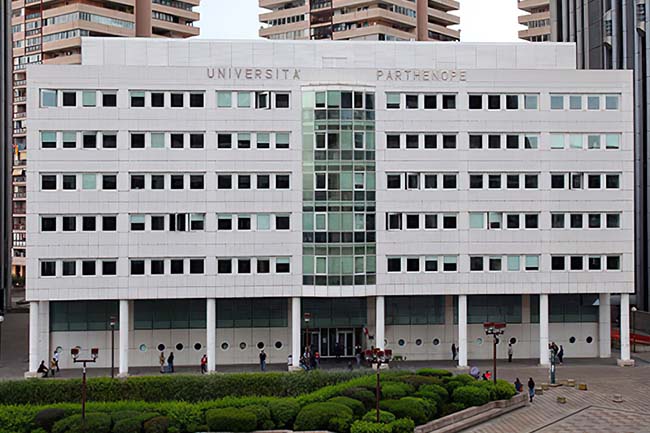IT solutions and technologies play a key role in various fields of production and research. Studying computer science is a highly creative activity, and the percentage of graduates under 30 who find employment is very high compared to other scientific sectors.
Graduates can find employment in private companies or public bodies and public administrations as programmer analysts or experts in IT tools and methodologies.
In the midst of the “digital age”, information technology is an integral part of our daily lives, and the ever-increasing number of applications of artificial intelligence are a concrete example of this. Studying computer science and developing high-quality, successful solutions is a highly creative activity in all modern fields of production and research. For computer science graduates, the percentage of under-30s finding employment is very high compared to other scientific fields.
Course Duration: 3 years
Number of Exams: 18
Number of Credits: 180
Admission: Free
Double Degree: No
Class Affiliation: L-31
Department: Science and Technology
Graduates will competently apply basic mathematical and physical knowledge to solve simple problems, and apply the methodologies, techniques and tools of computer science, both in theory and in practical contexts, and to objectively and quantitatively analyse the solutions they propose and develop. Graduates acquire the ability to understand, interact with and solve practical problems in various fields.
These skills are acquired and assessed through a training programme aimed at solving concrete problems and effectively validating the solutions proposed by students. In particular, they are acquired through laboratory activities, both educational and research laboratories, guided exercises, projects associated with almost all courses, company internships and the preparation of the degree thesis. Finally, they are assessed using traditional assessment tools (tests/mid-term exams, individual and group projects, course exams, assessment of company internships, final exams) and through an e-learning platform equipped with self-assessment tools and tools for interaction with teachers and tutors.
In particular, graduates:
FIND OUT HOW TO APPLY
Further information
All the information on the course, from admission to the final exam, for all students interested in enrolling in the Bachelor’s Degree Course in Computer Science.
Admission requirements
To enrol in the Bachelor’s Degree Programme in Computer Science, you must have a secondary school diploma or other qualification obtained abroad that is recognised as suitable for admission to a university degree programme in accordance with current legislation.
The following knowledge is required for admission to the degree programme:
Each year, specific regulations approved by the academic governing bodies determine the characteristics and procedures for admission to the degree programme. Students with educational deficits are required to fulfil additional educational obligations within the first year of the programme, according to procedures established annually by the Degree Programme Council.
Internships and Placements
Compulsory company internship programmes aim to introduce students to the job market in a guided manner, enabling them to familiarise themselves with the activities and responsibilities related to company functions and improving their teamwork and professional communication skills.
The Computer Science degree programme maintains a permanent network of contacts with ICT companies in the province of Naples. This network is built through agreements for compulsory company internships, formally stipulated between the University and ICT companies (approximately 130 companies). The degree programme has a special committee, currently composed of Prof. Antonio Maratea (chair), Prof. F. Camastra, Prof. A. Castiglione, Prof. A. Ciaramella, Prof. R. Montella, Prof. A. Staiano and Dr M.F. Andreoli, which manages the specific training projects for each internship/work placement, monitors each internship and awards credits. Companies are consulted individually on an annual basis by the Internship Commission to update the list of internships they offer for the following year. The administrative aspects relating to the activation of individual internships are handled by the Internship Commission and the Academic Secretariat of the relevant department (Department of Science and Technology).
Final exam
The Final Examination consists of a public discussion of a Degree Thesis, which is written by the student. The Degree Thesis is written at the end of a design or case analysis activity and must demonstrate the student’s ability to independently design, develop, validate, organise and present an IT solution to a problem. The thesis is developed under the guidance of a supervisor, chosen from among the lecturers of the Computer Science degree programme or the Department of Science and Technology. Students are encouraged to link the topic of their thesis to that of their company internship project. A second supervisor, who may also come from a company, is also permitted. The programme’s teaching regulations determine the criteria for determining the degree mark.
The presentation is made before the Degree Committee, chaired by the programme coordinator, in a public session. The presentation lasts approximately 12 minutes and requires the use of multimedia tools. The maximum mark obtainable in the Final Examination is established by the Final Examination Regulations (5 points in the 2020/21 academic year) and is awarded by a majority vote of the Degree Committee. This mark is added to the student’s career mark, possibly supplemented by the bonuses provided for in the Final Examination Regulations, and gives the final degree mark out of 110. The Final Examination Regulations also specify the requirements for awarding honours, which requires the unanimous approval of the Degree Committee. The Final Examination Regulations are issued by the Degree Programme and approved by the Department of Science and Technology.

BACHELOR’S DEGREE COURSE COORDINATOR:
Prof. CIARAMELLA Angelo
angelo.ciaramella@uniparthenope.it

Centro Direzionale di Napoli, Isola C4 – 80143 Napoli
Università degli Studi di Napoli “Parthenope”
Via Amm. F. Acton, 38 – 80133 Napoli (NA)
P.IVA 01877320638 | C.F. 80018240632
2021 – Università degli Studi di Napoli Parthenope – All Right Reserved